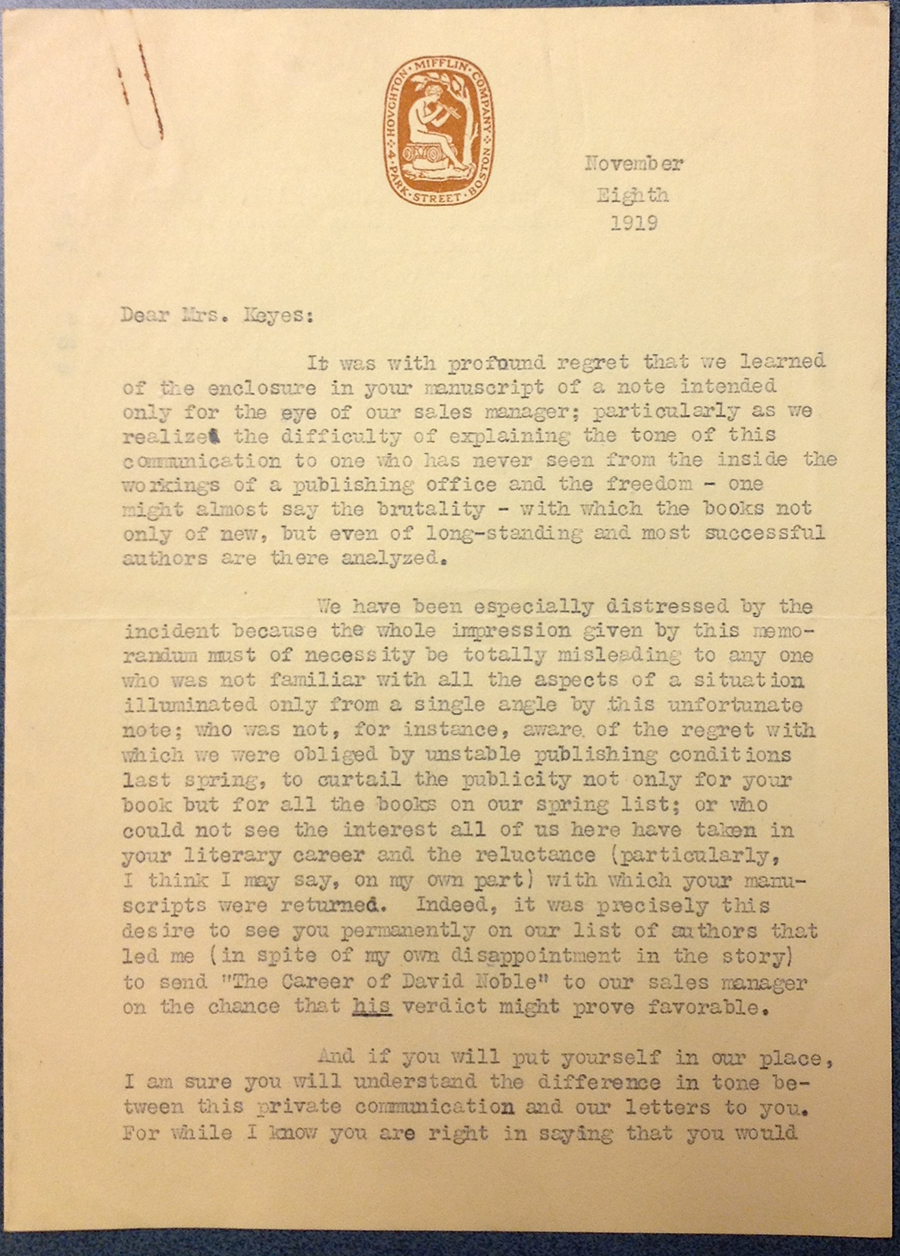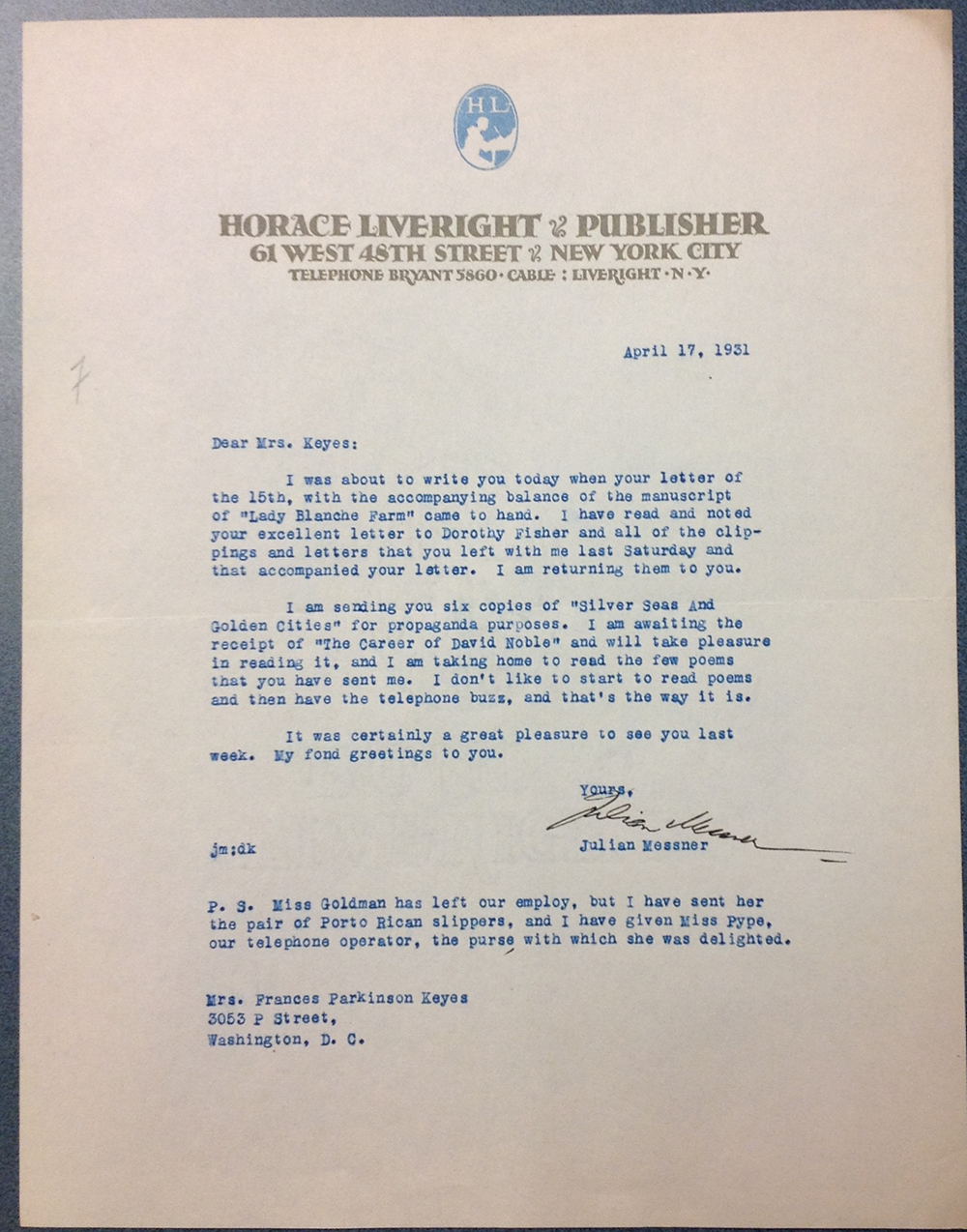Original Written Fiction : Leaving Houghton Mifflin
After spending years with Houghton Mifflin Company from her first published novel, she wrote for them again in hopes of having another book being published by the Bostonian Company. Unfortunately, Frances didn't receive any remarks on the first manuscript she sent to the company. Without a remark, she wrote another story for her publishers. In a two-year span, the company wasn’t happy with her writing, but she didn't discovered this through a note that was sent to her on accident.[1] Knowing that a publisher couldn’t tell her from beginning that her writing wasn’t up to par, made her angry and go off with vengeance to find a company that would publish her manuscripts just the way they were originally written. R.N. Linscott sent a condonlence letter to her apologizing to Keyes finding out the company wouldn’t publish either of her manuscripts. With his condonlence letter, he sent back the two manuscripts, “The Career of David Nobel” and “Lady Blanche Farm”, to her, explaining how the company was disappointed in her writing and her creativeness, but her attitude towards criticism from others was preventing her stories from being published. [2]
Moving on from the Houghton Mifflin Company, Frances Parkinson Keyes found a new publisher that helped her publish her rejected manuscripts, “The Career of David Nobel” and “Lady Blanche Farm”. In 1931, in the letter Julian Messner sent to her showed that during her time searching for a publisher, she never ceased to continue writing and creating new stories. One of her books “Silver Seas and Golden Cities” was sent to her for “propaganda purposes”[1] to promote to her readers the newest novel to purchase on the market. But a new twist to her writing was poems. Messner says in his letter, “I am taking home to read the few poems that you have sent me,”[2]. Frances always pushed herself as a writer, going above and beyond, never ceasing to stop her growth as writer. She never stopped writing and always found herself immersed in her stories where she made sure that each story had the correct language, characterization, and background[3].
[1] Apology letter to FPK from RN Linscott exclaiming his condolences about the note of manuscripts (November 8, 1919)
[2] Apology letter to FPK from RN Linscott exclaiming his condolences about the note of manuscripts (November 8, 1919)
[3] Direct quote from the letter sent by Julian Messener to FPK; April 17th, 1931
[4] Direct quote from the letter sent by Julian Messener to FPK; April 17th, 1931
[5] “Frances Parkinson Keyes: Mining the Mother Lode”. Jane F. Bonin. Louisiana Literature, Vol. 5 No. 1 Spring 1988


